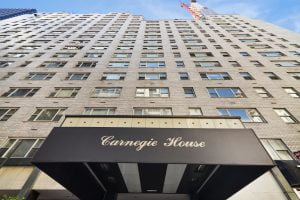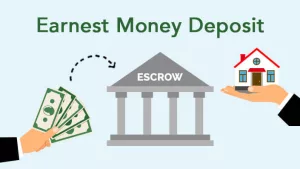Land Leases – What NYC Buyers Should Know
March 21, 2025 by Georges Benoliel
Go Back To Previous Page
Ground leases are relatively common in New York City commercial real estate leases. Some of New York’s most unique properties, like the Chrysler Building, carry one. While searching for an apartment, buyers sometimes find a listing too good to be true. It’s very similar to all the others except it’s much cheaper. They notice the maintenance is much higher than other listings. Chances are, they’re dealing with a ground lease real estate. What is a land lease? Who retains ownership? We will go over the definition of a ground lease. Why do they exist? How do they affect apartment owners in New York City? These are all fundamental questions for anyone considering a building with a land lease.
like the Chrysler Building, carry one. While searching for an apartment, buyers sometimes find a listing too good to be true. It’s very similar to all the others except it’s much cheaper. They notice the maintenance is much higher than other listings. Chances are, they’re dealing with a ground lease real estate. What is a land lease? Who retains ownership? We will go over the definition of a ground lease. Why do they exist? How do they affect apartment owners in New York City? These are all fundamental questions for anyone considering a building with a land lease.
Ground lease definition
“Land leases” are also called “ground leases.” In a ground lease, the landowner leases the land to a developer; therefore, the developer will build something valuable. This is common for commercial leases, where the landowner collects rent payments. It is a type of leasing.
The term of an unsubordinated ground lease is typically very long (for example, 99 years). The developer pays the ground lessor a fixed rental payment, which resets at various points during the lease term, typically according to the market value of the land.
At the end of the lease term, the ground lessor (who owns the land) can take the land back with all improvements. However, the leases are often renewed.
How can you check if a building has a ground lease?
An excellent real estate attorney will inform you during the legal and financial due diligence. However, you can learn more about it by reviewing the building’s annual financial statements.
can learn more about it by reviewing the building’s annual financial statements.
If the building has title to the land it sits on, land can be seen as an asset on its balance sheet, and lease payments can be seen as an expense in its income statement. The original offering plan will say the subordinated ground lease is a unique risk if there is one.
Lastly, searching for land lease agreements through public records on ACRIS may find evidence of the land lease.
What Problems Arise From A Land Lease?
There are two main obstacles a buyer of a land lease building needs to overcome.
- First are higher monthly payments. The property issues monthly payments to the landowner. Monthly charges on a land lease building are often significantly higher than those for other apartments. Just like if you were renting an apartment, all of this money goes to the underlying landowner. There is no associated tax deduction, nor does the money go to capital improvements.
- Secondly, land lease buildings have a smaller buyer pool, and most buyers find the high monthly charges and uncertainty associated with land lease buildings untenable.
It often takes a buyer a lot of time to get comfortable purchasing a land lease, and that discomfort can result in a longer sales process.
What Happens When a Land Lease Expires?

Ground lease definition
If a land lease expires without being successfully renewed, the land and everything built on it will be returned to the landowner. This means the landowner owns the condo or co-op building and everything attached to it.
As expected, land lease buildings in NYC typically trade at a discount because of the uncertainty associated with lease renewals. This presents an excellent opportunity for savvy buyers.
Ground leases on government-owned land
Except in Battery Park City, you can’t typically find ground leases in residential co-ops and condominiums. Among other things, they add a layer of costs on top of each unit owner’s maintenance.
With each rent reset, this can become rather considerable.
These resets make the apartments less marketable. In turn, they sell at a significant discount to comparable units in buildings unencumbered by ground leases.
For example, most people do not know that all of Battery Park City is on a land lease. New Yorkers built the neighborhood on new land excavated from landfill material from the construction of the World Trade Center. As a result, the land in Battery Park City is owned and managed by the Battery Park City Authority, a local government agency.
Ground leases are why Battery Park City apartments have such high monthly charges. Because of its status as a government agency, the Battery Park City Authority does not need to pay property taxes. Instead of covering the landowner’s property taxes, as is common in many ground lease agreements, buildings in Battery Park City make “pilot payments.” The Battery Park City Authority uses these proceeds to build and improve the neighborhood.
Therefore, an experienced buyer’s agent will be able to advise you that you have little to worry about buildings having land leases in Battery Park City.
The Battery Park City Authority is a not-for-profit government agency whose sole mission is to maintain and improve the neighborhood. There is minimal risk that they won’t agree to renew land leases with reasonable terms.
The normal co-op structure
The typical co-op structure is that each apartment “owner” is a shareholder in a corporation that owns the real estate in the apartments. The corporation does not own the real estate but leases it from a real estate investor under a ground lease with a ground lease.
At the end of the lease, the equity of all co-op shareholders can be wiped out if the property owner does not renew the lease. This essentially reduces the co-op’s shareholders to the status of renters, diminishing the co-op’s leverage to negotiate favorable rental terms in a new lease.
Very often, the co-op buys the land at an exorbitant price. They agree to painful, one-sided terms favorable to the ground lessor if they cannot muster the funds. This separation of interests also creates the terrifying prospect of a ground lessor selling the land.
Opportunistic investors want to capitalize on the rent resets during rising land values, generating a significant income stream. This is a common situation in the news today as land prices break new records daily.
Land lease buildings in NYC with private landlords
Land lease buildings in NYC built on privately owned land can present a significant challenge in valuation and marketability, especially if a lease expires. Those buildings in NYC typically have a 99-year lease agreement with two 20-year extension options.
Therefore, if you are only 20 years into the lease, you might not have much to worry about. However, if you only have 20 years left on the lease, you face some serious risks!
So what happens when a ground lease expires without renewal?
This is a nightmare scenario for buildings built on land they do not own. The ground lease agreement states that upon the ground lease’s expiration, all structures on and capital improvements of the land, including anything added by the tenant, are forfeited.
So, if the co-op cannot renew the lease, the building it paid for is handed over to the landlord. For a co-op shareholder, that means the value of their shares will plummet to zero.
Furthermore, this co-op corporation did not own the land, so shareholders effectively owned a portion of “lease equity.” As you can imagine, the co-op or condo board will be challenging to negotiate with a private, for-profit landlord regarding lease renewal.
Because of the uncertainty involved with ground leases, buildings in NYC decline in value over time, especially as a lease expiration date becomes imminent.
Examples of Ground Lease Co-ops in Trouble
The land underneath the Carnegie House co-op, located at 100 West 57th Street, was sold to a group of investors for $285MM, and the ground underneath the Trump Plaza co-op on East 61st Street is currently on the market. This situation is terrifying for co-op unit owners. The only reason investors would purchase a co-op ground lease is to make money on it—that is, to generate the ground rent increase as high as possible based on the then-existing market price of the land.
According to an analysis by The Real Deal, the Carnegie House co-op’s annual rent owed under the ground lease at current market prices could increase from $4.4MM/year to $27MM/year! Imagine what that would do to your maintenance payments!
So, if you’re ever searching Streeteasy and become enamored with a 2br/2ba co-op with a beautiful terrace priced comparably to a studio but has unusually high maintenance costs, turn away fast and continue your search. A ground lease probably encumbers it, and do not try to convince yourself that it’s worth it because of the low price tag. You do not want to mess with a ground lease co-op!
 can learn more about it by reviewing the building’s annual financial statements.
can learn more about it by reviewing the building’s annual financial statements. like the Chrysler Building, carry one. While searching for an apartment, buyers sometimes find a listing too good to be true. It’s very similar to all the others except it’s much cheaper. They notice the
like the Chrysler Building, carry one. While searching for an apartment, buyers sometimes find a listing too good to be true. It’s very similar to all the others except it’s much cheaper. They notice the 


